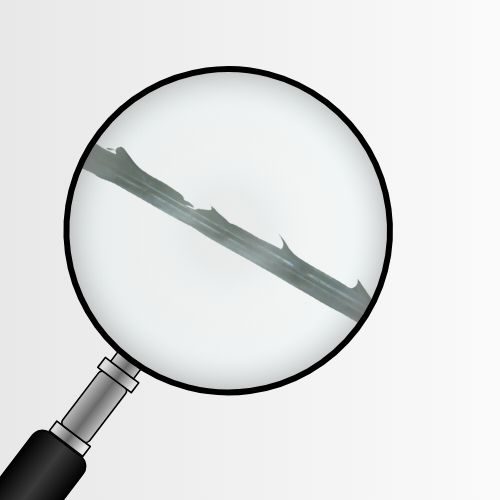 PDO (Polydioxanone) threads, PLACL (Poly L-Lactic Acid) threads, and APTOS threads are all types of threadlifting threads used in cosmetic anti-ageing procedures.
PDO (Polydioxanone) threads, PLACL (Poly L-Lactic Acid) threads, and APTOS threads are all types of threadlifting threads used in cosmetic anti-ageing procedures.
So what’s the difference?
Whether you’re considering having a thread lift for the first time or looking at the options for a second procedure, it is good to understand the options.
Threadlifting has become increasingly popular over the last few years as it creates quite significant results by pinning up the structure of facial tissues while also stimulating natural renewal mechanisms. Manufacturers of threads have helped to develop the market by introducing new materials that offer differing benefits for customers and practitioners.
PDO, PLACL, and APTOS threads are all absorbable threads that are used in thread lifting procedures to lift and tighten the skin. However, there are some key differences between these types of threads.
- PDO Threads:
These threads are made of a biocompatible synthetic material called Polydioxanone, a synthetic material that is FDA-approved for use in medical devices. They are typically smooth or have small barbs that help them grip the skin. They can be straight or have a spiral design.
PDO threads are the most common type of thread used in thread lifting, and they are known for their safety and effectiveness.
PDO threads are inserted into the skin to create an immediate lifting effect and gradually dissolve, stimulating collagen production and promoting long-term skin rejuvenation.
PDO threads are known for their versatility and can be used for various purposes such as lifting sagging skin, reducing wrinkles, and contouring the face or body.
PDO threads typically last for 6-12 months, during which time they stimulate the production of collagen and elastin in the skin. - PLACL Threads:
PLACL threads are made of poly-L-lactic acid, a naturally occurring substance that is also used in dissolving sutures. They are also biocompatible and gradually dissolve in the skin. They are a similar design to PDO threads, but have larger barbs that provide more lifting power.
Instead of providing an immediate lifting effect, PLACL threads work by stimulating the production of collagen. Over time, the increased collagen improves skin elasticity and tightens loose or sagging skin.
PLACL threads are commonly used for facial rejuvenation and reducing the appearance of wrinkles or fine lines.
PLACL threads are similar to PDO threads in terms of safety and effectiveness, but they tend to last for a longer period of time, typically 12-18 months. - APTOS Threads:
APTOS threads are a newer type of thread that is made of a combination of PDO and polycaprolactone (PCL). They come in a variety of shapes, including cones, spirals, and cogs. The shape of the thread determines how it grips the skin and how much lifting power it provides. The tiny barbs or cones along the length of the threads help to anchor the skin and hold it in a lifted position.
APTOS threads are also more versatile than PDO or PLACL threads, and they can be used to treat a wider range of areas, including the face, neck, and body. They provide an immediate lifting effect and anchor the skin in an uplifted position using barbs or cones.
APTOS threads are known for their long-lasting results, typically lasting for 2-3 years.
Here is a table summarising the key differences between PDO, PLACL, and APTOS threads:
| Characteristic | PDO Threads | PLACL Threads | APTOS Threads |
|---|---|---|---|
| Material | Polydioxanone | Poly-L-lactic acid | Polydioxanone + polycaprolactone |
| Duration | 6-12 months | 12-18 months | 2-3 years |
| Versatility | Less versatile | More versatile | Most versatile |
| Cost | Less expensive | More expensive | Most expensive |
In summary, the main differences between PDO, PLACL, and APTOS threads lie in the materials used, the mechanism of action, and the long-term effects.
All 3 options offer distinct advantages over surgery:
- Procedures are performed using local anaesthetic only.
- Threads remain in the skin, gradually dissolving and being absorbed by the body’s metabolism, so there is no need to worry about thread removal or adjustment over time.
- As the threads dissolve, the body’s natural collagen building processes work to boost natural renewal and regeneration.
The best type of thread for you will depend on your individual needs and goals. If you are looking for a safe and effective way to lift and tighten your skin, PDO threads are a good option. If you are looking for longer-lasting results, PLACL or APTOS threads may be a better choice. The best threadlifting technique for an individual depends on their specific goals.
It is best to get recommendations from a medical professional who is experienced in all 3 options. If you speak to a practitioner who only offers one or two, then they’re unlikely to offer something they don’t provide themselves.
They can be perceived to go further than many of the injectable treatments, but can also be used alongside treatments like skin boosters, IPL or BOTOX/dermal fillers for a more complete result.
CQC Registered Thread Lifts, London
Clinicbe is one of London’s premier CQC registered thread lift clinics.The clinic offers all 3 types of thread lift procedure:
- PDO Thread Lift – polydioxanone threads
- PLLA Thread Lift – poly-L-lactic acid threads
- APTOS Thread Lift – hyaluronic acid threads
For more information, book a consultation with Dr Barbara Kubicka MD.
Clinicbe® London
Skin, Nutrition, Body, Hair & Health Treatments
Clinicbe® in London was founded by experienced Aesthetic Physician Dr Barbara Kubicka MD, CIME/ICAM, MBCAM; a renowned Aesthetic Physician based in West London. It is based in the Knightsbridge area, easily accessible from and popular with those living or working in Chelsea and Mayfair.
The clinic takes a holistic approach to skincare treatments; treating the patient as a whole in order to get the best possible results from any treatments they may have. A wide range of options is available including advanced technology and the latest injectables as well as cosmetology treatments carried out by therapists.
For further information or to arrange a confidential consultation, please contact us on 0207 125 0521 or email info@clinicbe.com.








